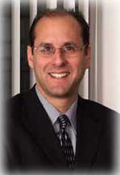UMass Memorial Medical Center has taken one ofthe most comprehensive approaches yet by a teaching hospital to limitclinician-industry interaction.
The vendor relations policy, which could be implemented by earlyspring, bans all gifts to physicians, including meals, entertainment and sportstickets, along with token items like hats and pens. The rule also nixesprivileges such as the ability of doctors at the teaching hospital to joincompany speakers bureaus. As far as site access by marketers, drug reps arestill allowed but not in patient care areas unless providing equipmenttraining, and they must make appointments. An extra measure of oversight isalso applied to funding for CME and provision of drug samples.
“This is really no knock on the pharmaceutical industry,” explainedDoug Brown, SVP and general counsel of UMass Memorial Health Care, the health systemthat oversees the academic medical center. “We recognize there’s a lot ofincredible value that comes from some of those relationships and in factclinical research and consulting relationships we in no way prohibit. We justensure that they’re…focused on objective research. The main issue from ourperspective is one of appearance…of undue influence or lack of objectivity. [Tothe extent that these exist] it can be insidious to the organization itself.”
UMass is just one of many US teaching hospitals concernedabout the appearance of these relationships. Boston University and Boston Medical Centeradopted strict conflict of interest rules this year, preceded by schools suchas Stanford, Georgetown, Yale, the University of Pennsylvaniaand the University of Michigan.
Brown, who participated in writing the UMass policy, told MM&M that clinical leaders withinthe health system mulled the rule change for months, working closely with thenonprofit Prescription Project and with David Rothman, a professor at ColumbiaUniversity and director of the university’s Center on Medicine as a Profession,who also co-authored an article two years ago in JAMA arguing that academic medical centers need to take aleadership role in adopting stricter stances in their dealings with industry.
The UMass rule exceeds the health system’s previous limits onmeals and other gifts and is also among the toughest in the country. Members ofthe hospital’s drug device procurement committee will be barred from having anyrelationships with industry. Other institutions often merely require committee membersto disclose such links.
What’s not prohibited in the new code is funding to specificclinical departments for general support of CME. However, companies must submitgrants to the hospital’s foundation first. And they cannot restrict educationaldollars to particular physicians or to a particular program within thedepartment. A newly created oversight counsel of physicians will review anyeducational donations over $10,000 in a given year to ensure the money is beingused appropriately.
According to TheBoston Globe—which first reportedthe story—that reflects a compromise reached only after doctors argued that thisis a crucial source for maintaining their skills; executives wanted to bancompany educational funding entirely. John O’Brien, chief executive of thehealth system, told the Globe thatthe hospital is fully prepared to make up for any loss in funding for educationprograms.
Samples also would be rerouted, in this case through thepharmacy department. Reps would not be able to drop them off directly for aphysician or a department.
The new policy was adopted by the heath system’s clinicalperformance council last week and goes to the full board in February.
“We think we struck a fair and appropriate balance,” Brownconcluded. “We don’t tinker with the important clinical research and therelationships involved there. We’re really focused on the marketing end and theother items that just create a real appearance problem.”







